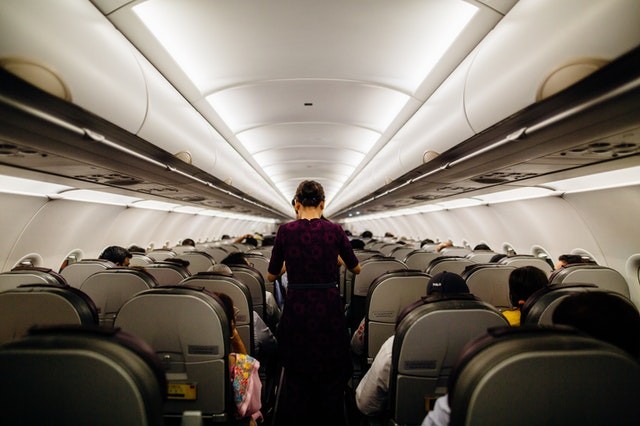
(Photo : Photo by Kelly L from Pexels)
In some ways, international travel is more challenging than ever. In other ways, it's easier than ever. Overall, has international travel become more convenient and more affordable? And is it set to become even easier in the future?
How International Travel Has Gotten Easier
Let's start by looking at the many ways that international travel has gotten easier.
- Lower costs and better deals. Overall, traveling internationally is much cheaper than it used to be. Once you adjust for inflation, it's obvious to see that modern travel is much more affordable; airfare for a nonstop flight across the country in 1941 was, adjusted for inflation, more than $4,500 per person. Today, you can pick up tickets for a similar journey for just $500, or a great deal for less than $300 per ticket. That's not even delving into the many other travel-related costs that have dropped over time, such as the cost of food, hotels, and ground travel.
- Online research. Thanks to the power of the internet, you can do all your own research in advance, book all your own trips, and keep track of your itinerary. Just a couple of decades ago, it was still common practice to accomplish all these tasks through your travel agent. Today's travelers are more empowered and more knowledgeable than ever, equipped with all the information they need to make their trip successful.
- Passport applications and processing. Getting a passport and processing that passport is also easier. Most passports now come equipped with electronic chips that make them easier to scan and verify.
- Visa waivers. Many developed countries participate in a mutually beneficial visa waiver program (VWP), allowing citizens of various countries to travel to other countries without needing to apply for a full visa.
- Electronic travel authorizations. In line with this, the VWP makes it easy for travelers to apply for an electronic travel authorization through systems like ESTA. In a matter of minutes, you can fill out an application online, get an electronic approval, and be qualified to travel to the United States from an approved country (provided you're staying there for less than 90 days).
- Translations and exchanges. Thanks to modern technology, it's also easier than ever to manage language barriers and currency exchange issues. You can translate signs and speech in real time using nothing more than your smartphone and rely on international exchanges (or cryptocurrency) to avoid getting scammed when exchanging currency.
- Navigation. GPS has been a literal lifesaver, helping millions of people traveling internationally to navigate unfamiliar terrain with detailed maps and instructions in their native language.
- The sharing economy. Thanks to internationally operating "sharing economy" services like Uber and Airbnb, you can book accommodations and travel from place to place quickly, easily, and inexpensively.
- International travel normalcy. International travel is also becoming more common and more normalized, making the process for admitting travelers much more streamlined and routine.
Has International Travel Gotten Harder in Any Ways?
International travel has always, and probably will always be somewhat challenging as well. No matter what, you're going to a country where you may not speak the language and where you may not be familiar with the culture. To get there, you might have to put up with cramped travel conditions, complaining family members, or other minor annoyances.
But has international travel gotten measurably harder in any way?
The short answer is yes:
- Security checkpoints. In an effort to combat terrorism and other forms of violence, airports and national borders have introduced new and more robust security checkpoints. For the most part, going through these checkpoints is an annoyance or inconvenience, rather than presenting a total obstacle to international travel - but they're still worth mentioning.
- The COVID-19 pandemic. The COVID-19 pandemic has also inspired a wave of significant changes to various countries' international travel policies. For example, some countries have shut their borders entirely for periods throughout the COVID-19 pandemic, and others have begun to enforce strict requirements related to vaccination status and disease testing.
- Changing requirements. Thanks in part to the ability to share information rapidly over the internet, countries are more flexible and more likely to change their travel requirements quickly - and sometimes without warning. That can make travel exceptionally difficult, and in rare cases, leave travelers stranded.
International travel in 2022 and beyond looks much, much different than it looked in 1992 - or even 2012. And as we experience more major cultural shifts, economic development, and technological advancement, we're probably going to see it change even further. Still, even though some aspects of international travel have gotten more challenging or more difficult, for the most part, international travel is far, far easier than it's ever been in the past.
* This is a contributed article and this content does not necessarily represent the views of hngn.com








